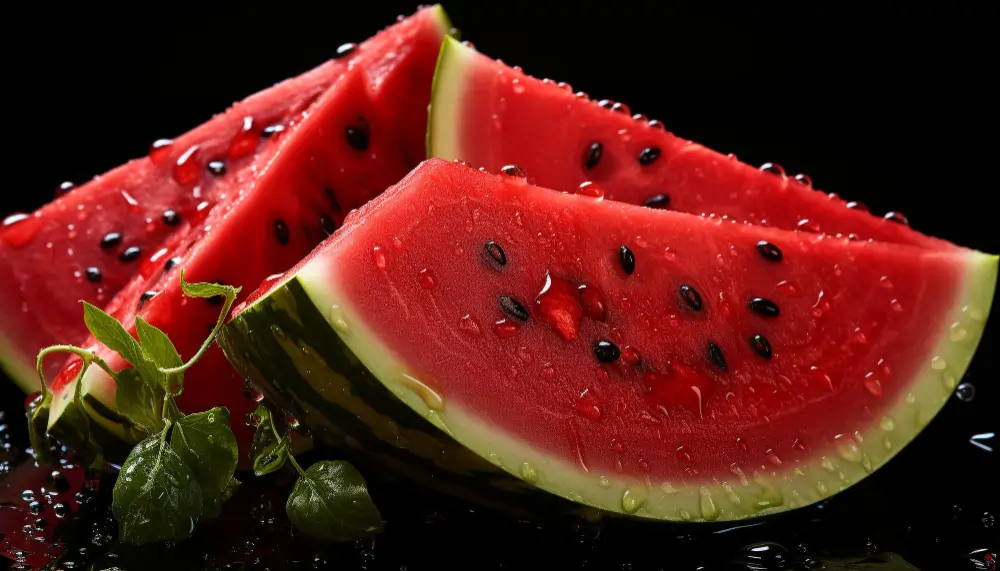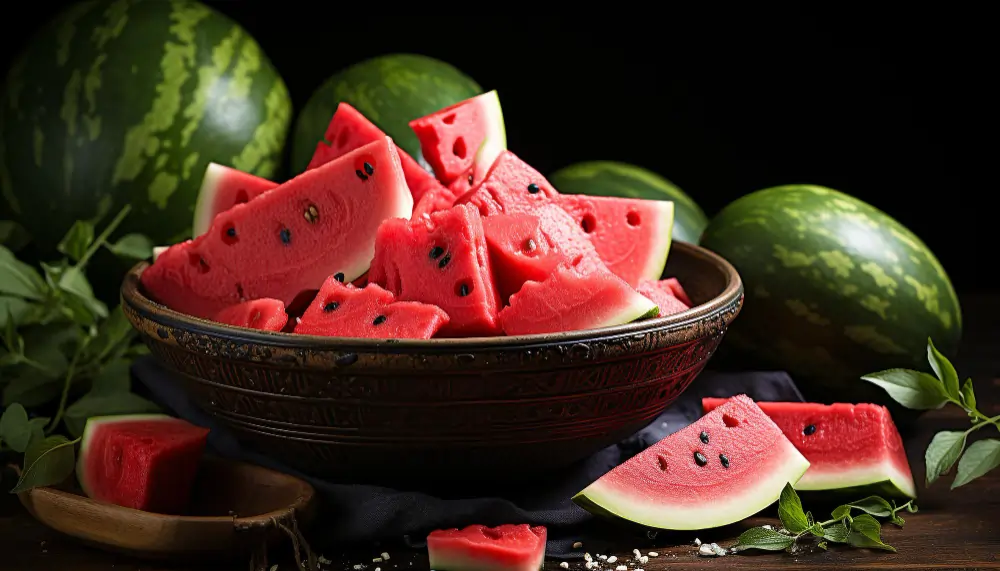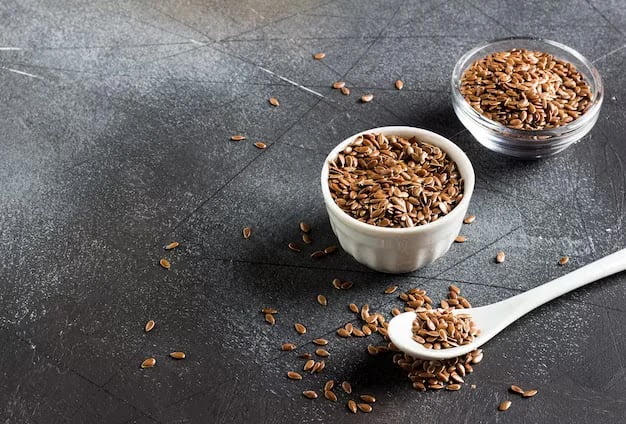
Introduction
Watermelon – the juicy, refreshing fruit that brings back memories of summertime picnics and sweet indulgence. But did you know that watermelon is more than just a tasty treat? With its vibrant pink flesh and succulent flavor, this fruit is also packed with essential nutrients and health benefits. In this article, we will explore Watermelon 101, diving into its nutrition profile, health benefits, potential risks, and other interesting facts. So, grab a slice of watermelon, and let’s uncover all its juicy secrets!
The Nutritional Powerhouse
The Composition of Watermelon
Watermelon is an incredibly hydrating fruit composed of approximately 92% water. This high water content makes it an ideal choice for quenching thirst and staying hydrated, especially on hot summer days. But watermelon is more than just water; it also contains a wide array of essential nutrients that contribute to overall health.
Vitamins and Minerals in Watermelon
Watermelon is rich in several vitamins and minerals that are vital for maintaining optimal health. It is an excellent source of vitamin C, providing a significant portion of the recommended daily intake. Vitamin C is not only essential for a robust immune system but also plays a crucial role in collagen production, helping to maintain healthy skin and connective tissues.
Additionally, watermelon contains significant amounts of vitamins A and B6, as well as potassium. Vitamin A promotes good vision and a healthy immune system while vitamin B6 supports brain development and function. Potassium is essential for maintaining proper fluid balance and supporting heart health.
Antioxidants in Watermelon
Watermelon is a potent source of various antioxidants, including lycopene and beta-carotene. Lycopene, which gives watermelon its vibrant red hue, is known for its powerful antioxidant properties. It helps neutralize harmful free radicals in the body, reducing the risk of chronic diseases such as heart disease and certain types of cancer.
Beta-carotene, another antioxidant found in watermelon, gets converted into vitamin A in the body. This antioxidant plays a vital role in protecting cells from damage caused by harmful molecules known as free radicals.
Health Benefits of Watermelon
Hydration and Electrolyte Balance
Staying hydrated is crucial for overall health, and watermelon can be a delicious ally in this endeavor. With its high water content and refreshing taste, watermelon helps replenish fluids in the body and maintain proper hydration. It also contains essential electrolytes like potassium, which are essential for fluid balance and nerve function.
Promoting Heart Health
A healthy heart is vital for a thriving life, and watermelon can contribute to cardiovascular well-being. The lycopene found in watermelon has been linked to reducing the risk of heart disease by lowering levels of LDL cholesterol and reducing inflammation in the body.
Boosting Immune System
A robust immune system is essential for fighting off illnesses and infections, and watermelon’s vitamin C content can give it a natural boost. Vitamin C is known for its immune-boosting properties, helping to strengthen the body’s defense mechanisms and ward off common colds and other ailments.
Supporting Eye Health
Maintaining good eye health is crucial for clear vision, and watermelon can contribute to this goal. It contains beta-carotene, which the body converts to vitamin A—a nutrient that promotes healthy eyesight and reduces the risk of age-related macular degeneration and night blindness.
Watermelon and Weight Management
Low Calorie and High Water Content
If you’re watching your weight, watermelon can be a delicious addition to your diet. With its high water content and low calorie count, watermelon provides a sense of fullness while keeping the calorie intake in check. Enjoying a slice of watermelon can help curb hunger and prevent overeating.
Fiber for Satiety
Fiber is an essential nutrient for weight management, and watermelon offers a modest amount of it. While not as fiber-rich as some other fruits, watermelon still contributes to feelings of satiety and aids in healthy digestion. Fiber also helps regulate blood sugar levels and supports regular bowel movements.
Watermelon and Exercise Performance
Natural Source of L-Citrulline
When it comes to exercise, watermelon can be a natural ally for enhancing performance. Watermelon is a rich source of L-citrulline, an amino acid that assists in the production of nitric oxide. Nitric oxide helps improve blood flow, aerobic endurance, and overall exercise performance.
Enhancing Post-Exercise Recovery
Following an intense workout, the body requires proper recovery to repair muscles and replenish energy stores. Watermelon’s hydrating properties, natural sugars, and electrolytes make it an excellent choice for post-exercise recovery. Replenishing fluids and electrolytes is crucial for efficient recovery and reducing muscle soreness.
The Role of Watermelon in Skin Health

Hydrating Properties for Radiant Skin
Healthy, hydrated skin is coveted by many, and watermelon can help achieve that coveted glow. As a hydrating fruit, watermelon contributes to the skin’s moisture retention, making it look more supple and radiant. Regular hydration from within can also prevent dryness and promote a smoother complexion.
The Antioxidant Power
Watermelon’s rich antioxidant content plays a vital role in protecting the skin from damage caused by free radicals. Antioxidants help neutralize harmful molecules that can lead to premature aging and skin damage. Consuming watermelon can help combat oxidative stress and keep your skin looking youthful and healthy.
Protection Against Sun Damage
While watermelon can’t replace sunscreen, it offers a degree of natural sun protection due to its rich lycopene content. Lycopene has been shown to help protect the skin from UV-induced damage and reduce the risk of sunburn. It acts as an internal sunscreen, working in tandem with external sun protection measures for optimal skin health.
Potential Risks and Considerations
Controlling Sugar Intake
Although watermelon is a delicious and nutritious fruit, it’s essential to be mindful of your overall sugar intake. While watermelon’s sugar is naturally occurring and accompanied by fiber, consuming excessive amounts can still contribute to blood sugar spikes or hinder weight management efforts. Moderation is key to enjoying the benefits of watermelon without compromising your health goals.
Food Allergies and Sensitivities
While relatively uncommon, some individuals may be allergic or sensitive to certain fruits, including watermelon. Allergic reactions to watermelon can range from mild to severe, including symptoms such as hives, swelling, or difficulty breathing. If you experience any adverse reactions after consuming watermelon, it is best to consult with a healthcare professional.
Watermelon Fun Facts
A Close Cousin to Cucumbers
Watermelon belongs to the same plant family as cucumbers, pumpkins, and squash, known as the Cucurbitaceae family. Despite their distinctive taste differences, watermelon and cucumbers share a striking resemblance in terms of their vine-like growth and similar green rinds.
World’s Largest Watermelon
The world record for the heaviest watermelon ever grown goes to a melon weighing a staggering 350.5 pounds (158.8 kilograms). This super-sized fruit was cultivated by Chris Kent from the United States. Imagine trying to eat a slice of that gigantic watermelon!
Unique Varieties
Watermelon comes in various shapes, sizes, and colors. Alongside the common red-fleshed watermelons, you can find varieties with yellow or orange flesh. Additionally, some watermelons have a striped or mottled rind, adding aesthetic appeal to this already delightful fruit.
Conclusion
Watermelon is undoubtedly more than just a refreshing summer fruit; it is a nutritional powerhouse with an array of health benefits. From its hydrating properties to its rich vitamin content and antioxidant power, watermelon offers a wide range of advantages for overall well-being. However, it’s important to be mindful of potential risks such as excessive sugar intake or food allergies. By enjoying watermelon in moderation, you can savor its delicious taste while reaping the benefits it has to offer.
FAQs
1. Can watermelon help with weight loss?
While watermelon is a low-calorie option and can contribute to feelings of fullness, weight loss ultimately depends on overall calorie intake and a balanced diet.
2. Is watermelon safe for people with diabetes?
People with diabetes can enjoy watermelon in moderation as part of a well-managed meal plan. It’s advisable to monitor blood sugar levels and consult a healthcare professional for personalized guidance.
3. How can I pick a ripe watermelon?
To select a ripe watermelon, look for a uniform shape with a dull rind, a yellowish spot (the field spot) on the bottom, and a hollow sound when tapped gently.
4. Are there any side effects of eating watermelon?
While watermelon is generally safe for consumption, excessive intake can cause stomach discomfort or diarrhea due to its high water content. Moderation is key.
5. Can I freeze watermelon?
Yes, watermelon can be frozen and enjoyed later. Cut it into cubes or slices, remove the seeds, and place it in an airtight container or freezer bag.


